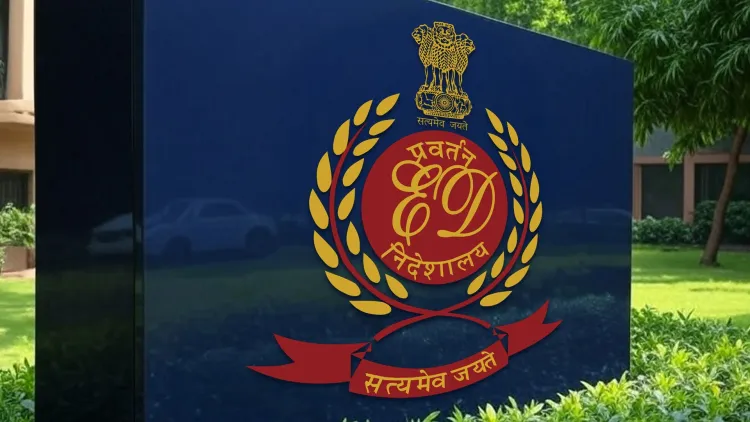How Did the ED Restore Properties Worth Rs 12.79 Crore to a Liquidator in a Rs 29.75 Crore Bank Fraud Case?

Synopsis
Key Takeaways
- ED restored properties worth Rs 12.79 crore to the liquidator.
- The fraud case involves Rs 29.75 crore against Punjab National Bank.
- Investigation initiated by CBI on January 21, 2014.
- Properties included land, building, and machinery.
- Liquidator's application was approved by the trial court.
New Delhi, Aug 14 (NationPress) The Enforcement Directorate (ED) has returned properties worth Rs 12.79 crore to the liquidator of a firm implicated in a Rs 29.75 crore fraud against Punjab National Bank, as stated by an official on Thursday.
The properties, valued at Rs 12.79 crore, were restored to Ashok Kumar Gupta, the liquidator of M/s Dynamic Shells (India) Private Limited, in connection with the fraud case involving Dynamic Shells (India) Private Limited and others, according to the official report.
The ED's investigation commenced following an FIR No. RCBDI2014/E/0003 lodged by the Central Bureau of Investigation (CBI) on January 21, 2014, under various sections of the Indian Penal Code (IPC), 1860, and the Prevention of Corruption Act (PC Act), 1988, against Dynamic Shells.
Findings from the investigation indicated that the funds generated from the fraudulent activities of forgery and cheating were funneled through the accounts of various dummy companies, with funds either withdrawn in cash or redirected into the personal accounts of Shambu Prasad Singh, the director of Dynamic Shells.
As part of the proceedings under the Prevention of Money Laundering Act (PMLA), properties worth Rs 21.29 crore were provisionally attached under Section 5(1) of PMLA, 2002, through a Provisional Attachment Order (PAO) issued on March 29, 2017.
A prosecution complaint was filed on July 18, 2018, against Shambu Prasad Singh and others regarding the case.
In the interim, liquidator Ashok Kumar Gupta submitted a request under Section 8(8) of PMLA, 2002, to the trial court on February 15, 2025, for the restoration of an attached property.
The attached assets included a two-story building, an industrial shed, and machinery located at 35, Sector-3, Industrial Growth Centre, Bawal, Haryana, valued at Rs 12.79 crore.
Punjab National Bank has also released its claim over the property in favor of the liquidator, leading the ED to agree to the restoration of the properties to the liquidator, the statement added.
The trial court approved the application for the restoration of properties on June 5, 2025, after which the ED transferred them to the liquidator.









